What are Forex Futures?
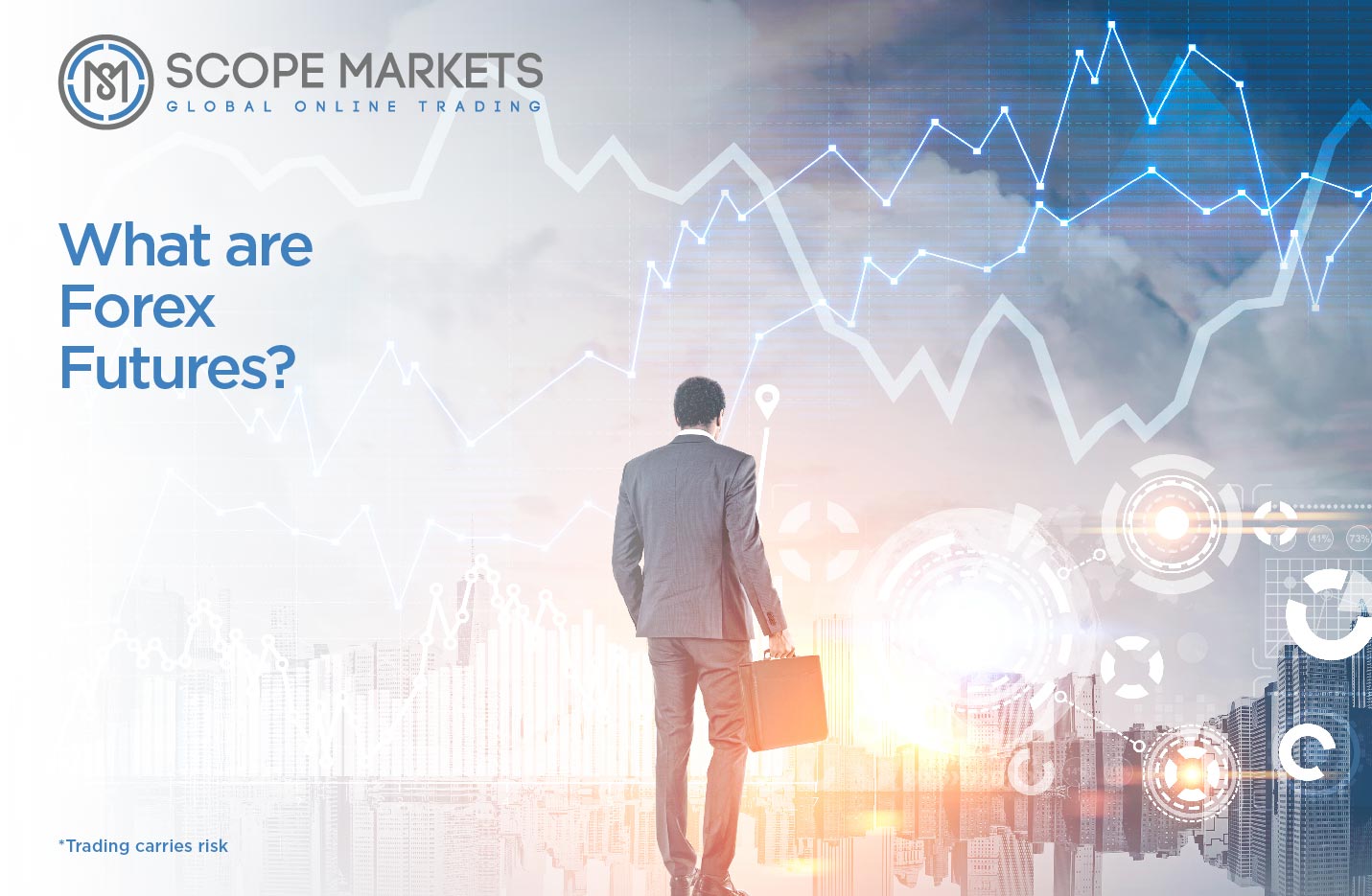
Contents
Forex futures are generally forex-reliant economic derivative bonds or securities. These derivatives are often regulated. Forex futures are agreements or contracts that define when a person or company should buy or sell a forex currency and for which amount.
These kinds of contracts are then exchanged at various forex futures exchanges all over the world, unlike the traditional forward contracts, these contracts are commonly traded, non-customizable (regulated in their defined contract dimension and agreement processes), and assured next to credit impairments by a mediator called a clearance house.
The clearance house offers this assurance via a procedure in which profit and loss accumulated on a regular basis are generally changed into real cash declines and debited or credited to the account possessor. This procedure, called mark-to-market, employs the percentage of the last few trades of the day to determine a contract price. This contract price is then employed to know even if a profit or loss has been realized in a forex futures trading account. Between the earlier day’s contract and the current ones, the profits and losses are generally dependent on the final contract value.
Finding all about forex futures
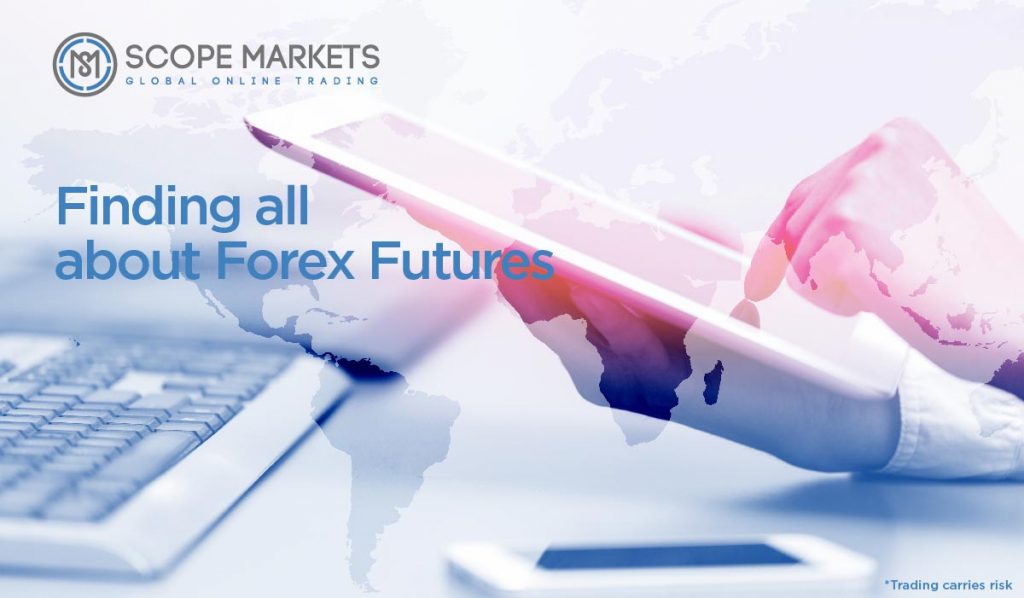
The cost of all futures’ agreements generally depends on the fundamental asset, which would be a currency tool. All forex futures are particularly created with a definite end date, at which point distribution of the currency must take place except when an offsetting trade is being created on the primary position.
Forex futures serve two key purposes as financial tools. First, they may be employed by organizations, or sole owners, to hedge in order to mitigate the risk of exchange-rate which is common in cross-border activities. Second, they may be employed by investors to risk and profit from currency transaction rate variations.
Futures in forex are derivative agreements that are money-settled when they end on fixed dates, usually on the 2nd business day previous to the 3rd Wednesday in the resulting agreement months such as March, June, September, and December.
Forex futures are generally traded for many reasons. First, due to the different dimensions of the agreements, they are the best tool for initial investors who wish to trade smaller positions, and, as they are liquid in nature, big investors would make use of them to consider notable trade positions.
Futures in forex may also be hedging tactics for organizations who have future payments in forex. Say, if a U.S. organization has been ready to own a holding from a European organization with an amount at a future time they can buy a few euro forex futures to hedge and protect themselves from an undesired movement in the fundamental asset: the Euro/US Dollar movement rate.
How to start trading Forex futures
To begin forex futures trading, you must first get a complete insight into the international currency market. Also, you need to get a complete understanding of how futures agreements perform. Once you gain that insight, you should then select one or only a few forex pairs to put effort into for a start and analyze the performance and trends of these exchange pairs. Next, you can proceed to create a trading account with any forex broker and then begin to implement the analysis and strategy you have come up with to trade to ensure it performs.
Is trading Forex futures and spot Forex different?
The main difference between spot forex and forex futures is that spot forex is convertible, signifying that it is not bound to exchange norms, whereas forex futures are generally traded on organized exchanges, essentially the Chicago Mercantile Exchange also known as the CME
Spot forex involves the direct trading of physical currency whereas forex futures are contracts based on these currencies for trading someday in the future. Whereas it is still partaking in all of its price changes through only a part of what it can have been exchanging spot forex. When you reach the bank to replace your local currency with foreign currency in hope of realizing a gain in the exchange, you are then dealing in spot forex.
In forex futures, all you require is a part of that cash you used towards purchasing those forex currencies and you would not need to hold any of those forex currencies whereas still partaking in all the price changes of that forex currency with leverage. You just buy in those forex currencies on ending of the forex futures settlement and only if you want to. You also can balance your forex futures trade position and generate profit. You do not need to always buy the forex currencies to gain from them via Forex Futures unlike in spot forex.
Timings of Forex futures trade
Investors can trade Forex futures 24hrs a day and 5 days a week. It’s a decentralized non-stop exchange that trades all over the world in a baton-relay form beginning from Australia, Sydney, and goes after the sun all over New York, starting on Sunday at 5 pm Eastern Time all over 5 pm Eastern Time on Friday. This propagated, twenty-four hours market, made it workable for anybody at any time region to trade forex futures anytime they need and is helpful for futures traders who have full-time work and may only get traded all through after-office timings.
Methods by which investors use Forex futures
Direct and institutional shareholders trade forex futures using hedging and speculation. Both of these derivatives actually adjust themselves very well to both shareholders.
Using hedging to trade Forex futures
Shareholders who hedge via forex futures target to decrease currency exchange rate risk variations. This is the best use to institutional traders. Retail traders can also benefit from this, but on a much smaller scale..
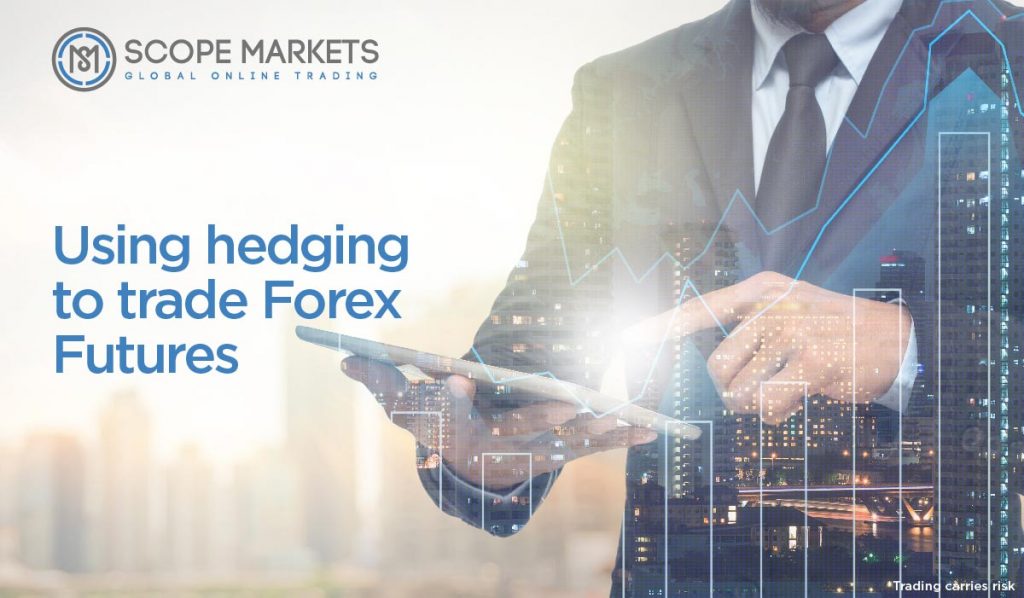
Hedging based on forex futures makes analytical sense, but on a very small scale, its impacts may be trivial.
For Instance:
A company based in the US hopes to get 1 million Euro for its services provided in Europe.
The amount will paid out in a span of five months. Suppose the Euro/US Dollar exchange rate is 1.12. That translates from EUR 1Million to USD 1.2 Million. A fall in the market rate will show notable losses for the company based in the US. If the market rate were to fall to 1.10, then the company will realize a loss of USD 20,000.
Spot forex does not provide the company a reasonable method to protect the transaction.
It can then trade 8 forex futures worth EUR125,000, which will then be converted into a profit if the market or exchange rate were to fall. This profit will then balance the losses occurring from the activity itself.
The above-stated example also makes explicit the constraints of the exercise for retail traders.
Using speculation for Forex futures
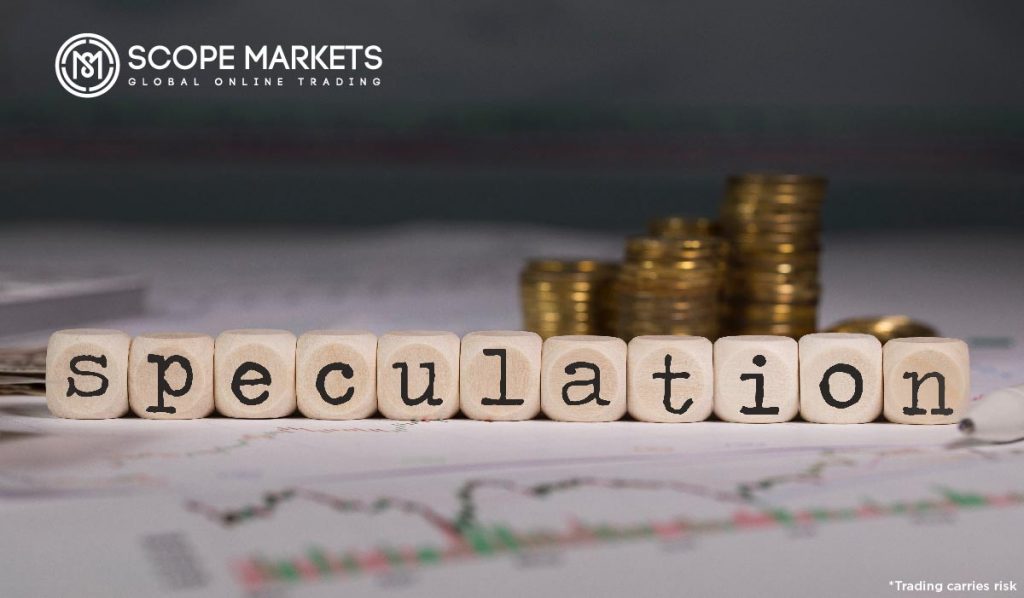
Various traders use speculation to trade forex futures. They buy a definite currency, and when the corresponding value of that currency increases, they trade or sell it to gain profit. The issue with this method is that it is difficult to profit from a currency when its value falls.
Futures remedy this concern. Traders who think a currency’s value is going to fall can trade in futures in place of owning them.
Forex futures abide by exchange rules, unlike the forex market. Due to their different contract extension, forex futures are appropriate for small-scale shareholders. But, due to their liquidity, they are also well matched for institutional or large-scale shareholders considering big trade positions.
Advantages of trading Forex futures
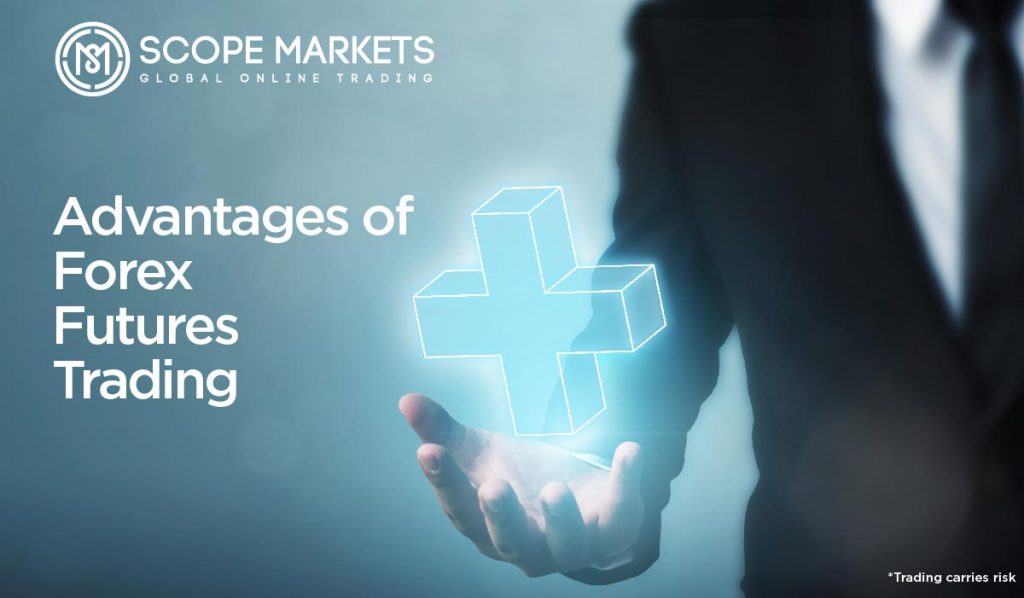
One of the largest advantages of trading forex futures is that it is a twenty-four hours and 5 days a week, international market. This lets traders trade forex futures in their available time, despite what time that may be. Additionally, the capability of hedging to mitigate currency exchange rate risk is an added advantage for trading forex futures for organizations and institutions.
Risks of Trading Forex futures
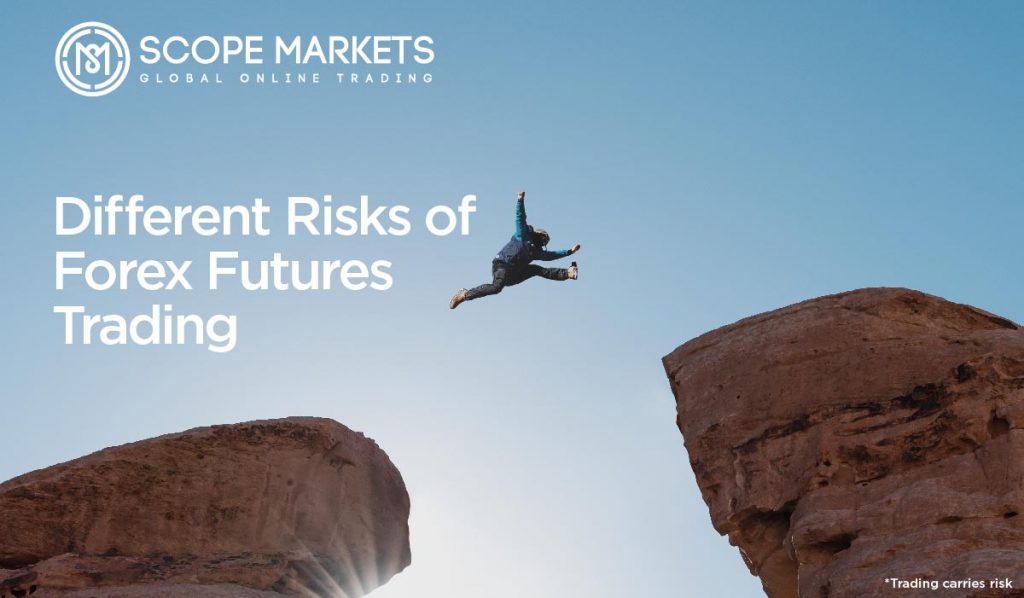
One of the greatest risks of trading forex futures, is that you may lose more cash than you initially deposited to trade. If you are trading long forex futures and the currency shifts against you on a particular day, then you could lose so much in a single day to ensure a margin call. If you do not have an adequate amount to achieve the margin call, then your trade position will not only get forcefully ended but you also wind up with a negative balance.
Forex futures trading is how various multi-billion-dollar organizations fell overnight. For instance, the Barings Bank that became insolvent because of trading forex futures. Evidently, effective risk management in sense of leverage and liquidity needs to be clearly mapped out when trading forex futures.
Final words about forex futures
Trading in Forex futures has high risk. So, traders should have a comprehensive understanding of the technical and macroeconomic study and be aware of a contract’s different features and rules related to exchange. Clarity, liquidity, and reduced risk of failure make forex futures a winning trade. But the trader should consider the influence of the margin in realizing losses and gains, have required persistence, and make a proper risk management strategy before placing their initial trade.
References
https://www.investopedia.com/articles/forex/042015/introduction-trading-forex-futures.asp
http://www.futurestradingpedia.com/forex_futures.htm
Article Disclaimer
